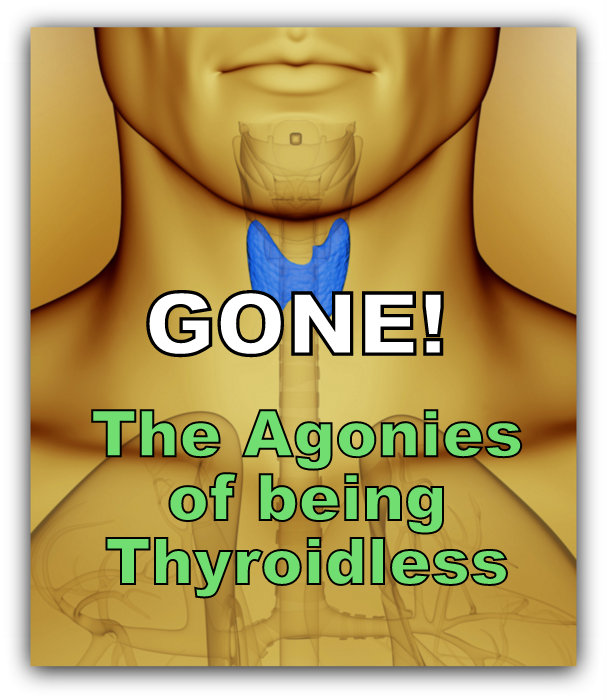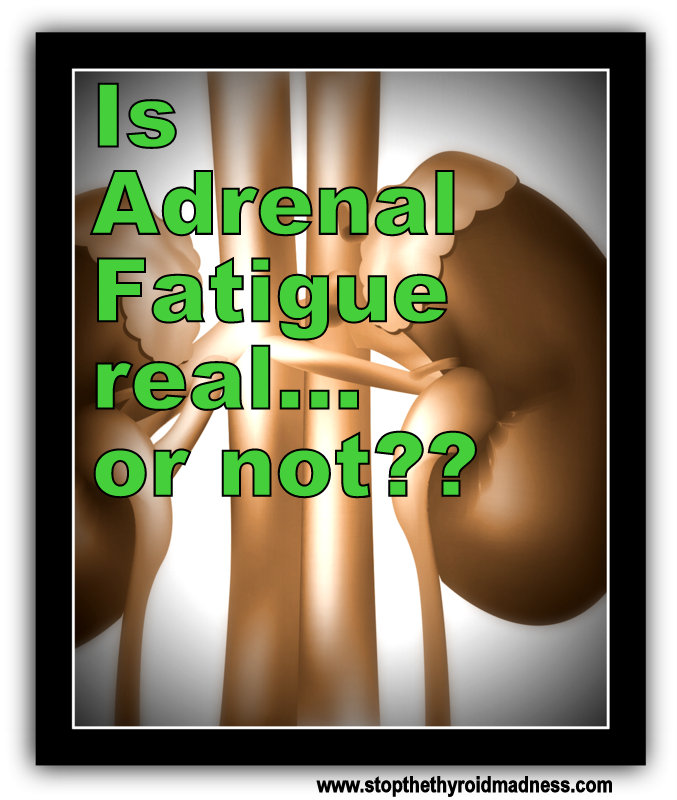The Agonies of Being Thyroidless–4 reasons it sucks
(Though this was originally written in 2009 about having a thyroidectomy or being thyroidless, it has been updated to the present day and time and fits no matter what year this is being read.)
There was a time when I thought being hypothyroid without a thyroid was really no different than being hypothyroid with one. Hypo is hypo, and we are both dependent on treatment.
But I was wrong.
There really is a difference in our journeys–even if we both end up with hypothyroidism. Here are four strong reasons it’s not fun being without a thyroid:
1) It’s no picnic to lose one’s thyroid
It starts even before surgery with a biopsy to detect if one has thyroid cancer–not always a comfortable procedure. Then with surgical removal comes the inconvenient stay at a hospital, post-surgical neck discomfort, potential loss of one’s voice or hoarseness and/or other complications, including the loss of one’s parathyroids (this doesn’t happen to everyone). Treatment with RAI, or Iodine 1-131 to kill the thyroid, has its own risk of lifelong side effects, including gastrointestinal issues, parotid salivary gland problems, and more potential risks.  Again, this doesn’t happen to everyone, but the thought can be stressful. Read one patient’s opinion about RAI.
2) The stress of surgery and/or RAI can do a number on one’s adrenals
By repeated observation, there seem to be a high percentage of those who had surgery and/or RAI who also end up with adrenal fatigue/low cortisol with its nightmarish side effects. Or, if someone doesn’t get low cortisol from the surgery, a high percentage get it simply from the typical post-treatment with Synthroid or Levothyroxine–forcing one to rely on conversion alone. Being on T4-only is the number one predictor of having overly stressed adrenals, patients have observed and experienced. See the last chapter in the STTM II book by Lena Edwards, MD, which explains reasons why our adrenals can head south.
3) Some have a unique anguish about their new vulnerability
No one can live without a thyroid. And that thought, along with the absolute lifelong dependency on thyroid meds, is not a comfortable state to be in, say many who had to have their thyroid removed. Granted, those with a low-functioning thyroid for any reason (active genetic mutations, hashimoto’s damage or any other cause for damage have that life-long dependency as well. But those without their thyroid feel especially vulnerable.
4) Life long regret of an unneeded surgery can be huge
Many patients came to realize, after removal, that they may not have needed the removal at all. For example, some patients have reported that their thyroid was removed simply from having Hashimoto’s disease (which could have been treated without removal). Some had their thyroid removed simply from “cancer possibilities”, yet they never had cancer at all.
Please know you aren’t alone if you are living without a thyroid.Â
NOTE; If you have a short story to tell about being thyroidless, use the Contact form below to let Janie know you have a story. We’ll link to it on this page.Â
**************************
** Learn why Synthroid or Levothyroxine is the worst way to treat your hypothyroidism.
** See all your options for a MUCH better thyroid treatment.
** LEARN from the STTM books–it’s IMPORTANT for you to be informed.Â
** Have you Liked the STTM Facebook page? It’s a great way to receive daily inspiration or information!
** Check out all the STTM information pertaining to thyroid cancer, right here.Â


 (Though this post was originally written in 2009, it has been updated to the current day and time and still applies!)
(Though this post was originally written in 2009, it has been updated to the current day and time and still applies!)
 The news this morning about Oprah made me pause.
The news this morning about Oprah made me pause. Last May, a very interesting article appeared in the May 2009 issue of the Journal of Clinical Endocrinology and Metabolism, titled For Some, L-Thyroxine Replacement Might Not Be Enough: A Genetic Rationale and presented by Endocrinologists in Bristol in the UK. It’s accompanied with an editorial by Endocrinologists Brian W. Kim and Antonio C. Bianco.
Last May, a very interesting article appeared in the May 2009 issue of the Journal of Clinical Endocrinology and Metabolism, titled For Some, L-Thyroxine Replacement Might Not Be Enough: A Genetic Rationale and presented by Endocrinologists in Bristol in the UK. It’s accompanied with an editorial by Endocrinologists Brian W. Kim and Antonio C. Bianco.
